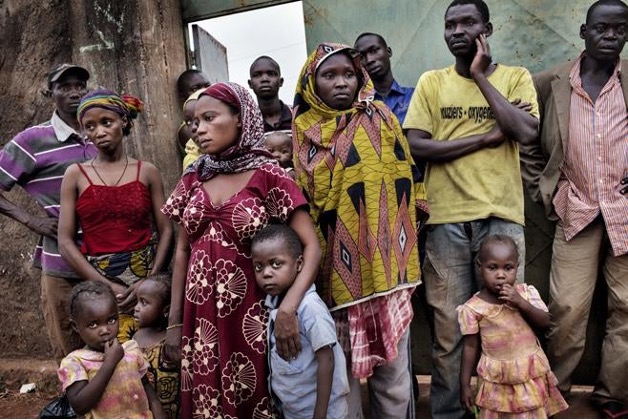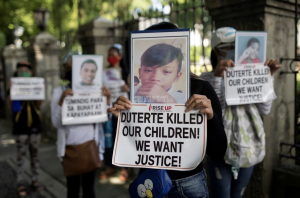By: Sallie Moppert
Impunity Watch News Staff Writer
THE HAGUE, Netherlands – After over a decade of investigations into the atrocities and crimes occurring in the Central African Republic, the International Criminal Court (ICC) announced that it would be concluding the investigation phase into a situation being addressed by the Court. The ICC opened its first investigation into the Situation in the Central African Republic in May 2007. The goal of the investigation was to uncover and examine evidence of alleged crimes against humanity and war crimes during the armed conflict occurring in the Central African Republic (CAR) between July 2002 and July 2003. A second investigation was launched in September 2014 after a referral by the Government of the CAR, with this investigation looking into the alleged crimes against humanity and war crimes occurring between the armed groups Séléka and the Anti-Balaka since August 2012.

Photo courtesy of Human Rights Watch.
“Our work in the Situation in the Central African Republic is, however, far from over,” ICC Prosecutor Karim A.A. Khan KC explained in his statement. “My Office will now concentrate its efforts on ensuring the successful prosecution of those subject to arrest warrants and significantly deepening its cooperation with the Special Criminal Court for the CAR.”
Since the commencement of the investigations into the Situation in the CAR, several individuals have been arrested and charged with various crimes against humanity and war crimes. Two notable cases include that of Alfred Yekatom and Patrice-Edouard Ngaïssona, who have been charged with a multitude of crimes, including intentional attacks against the civilian population, murder, rape, cruel treatment, mutilation, persecution, severe deprivation of physical liberty and recruiting child soldiers. Another ongoing case involves the confirmation of charges against Maxime Mokom, who has been arrested and transferred to the ICC in March 2022 for similar crimes. The Mokom case was recently postponed by the Pre-Trial Chamber on January 24, 2023.
“Since the opening of these investigations, my Office has examined evidence related to alleged crimes committed by all parties to the armed conflict. It carried out its work in an independent, impartial and objective manner, in partnership with survivors, civil society, and with fruitful cooperation of relevant national authorities,” Khan said. “In the discussions held between my Office and Central African Republic authorities, we have addressed a common vision through which the focus of action for accountability will now move to the domestic level, with the committed and meaningful support of my Office. My Office stands ready to continue its work with and alongside the authorities of the Central African Republic, survivors, the families of victims, and civil society in the task that lies ahead.”
For further information, please see:
Human Rights Watch – Central African Republic: ICC Investigation Needed – 26 June 2014



